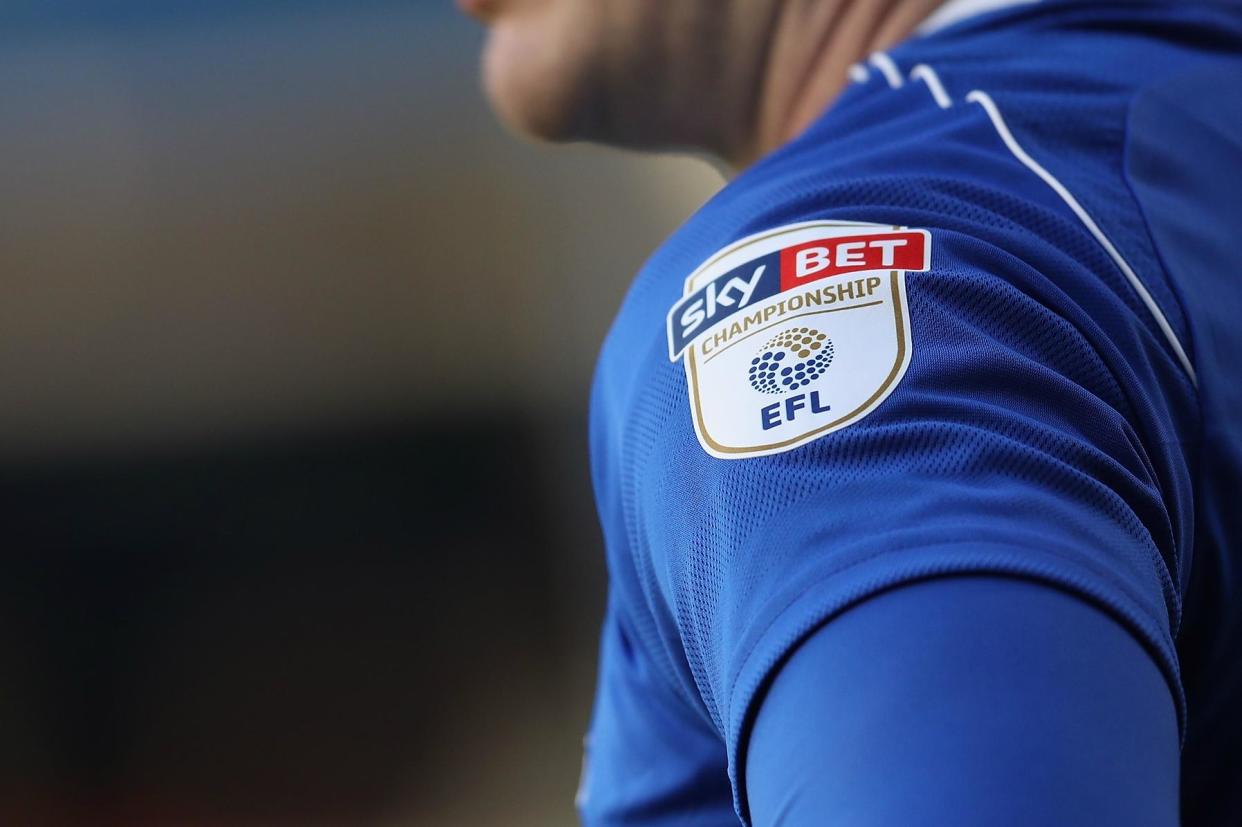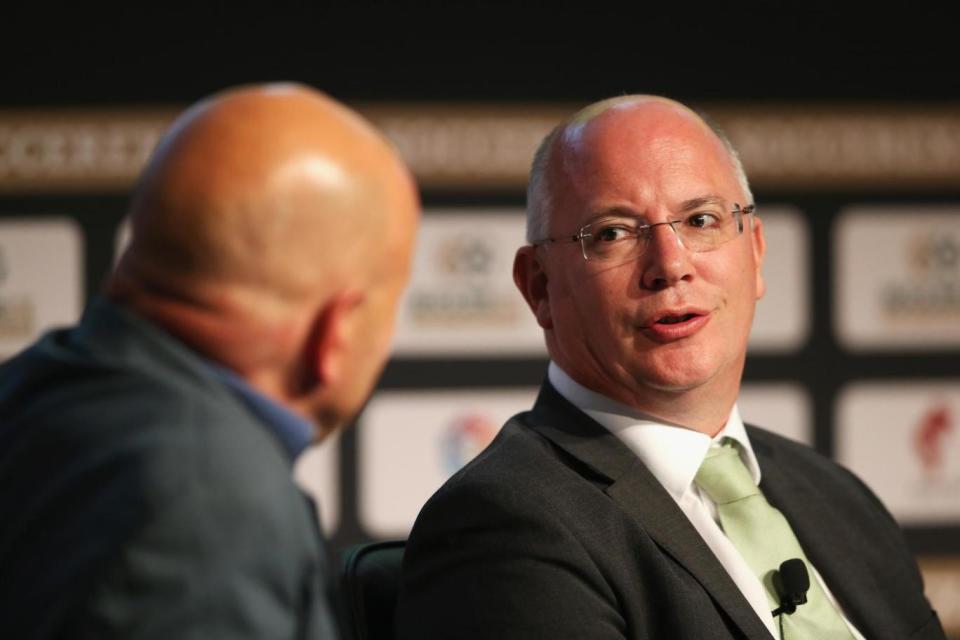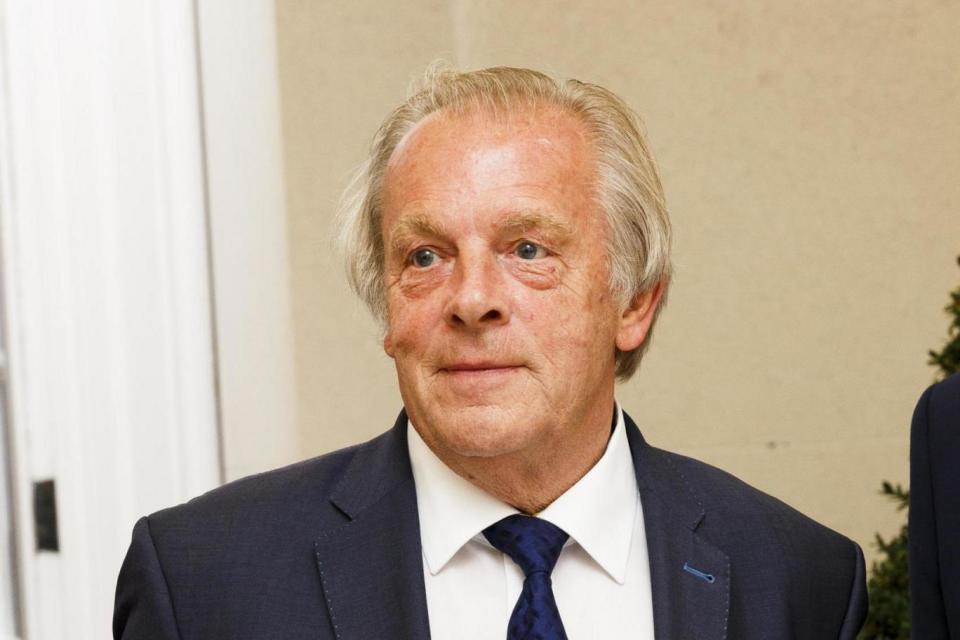EFL breakaway bid yet another example that football is awash with greed

Football is at a crossroads. The game has been here before. Invariably, it has gone down the path marked greed.
The evidence is everywhere. On Monday, a group of Championship clubs led by Derby County, Leeds United and Aston Villa were attempting to force the Football League to abandon a five-year, £590million broadcast deal that the ruling body have agreed with Sky.
The clubs believe the contract is too long at a time when the media landscape is changing rapidly and that the money on the table undervalues televised games. The EFL’s chief Shaun Harvey is under huge pressure.
Harvey once considered himself the natural successor to Richard Scudamore at the Premier League. Scudamore’s greatest talent has been his ability to wring cash out of TV companies. The master negotiator soured his legacy by accepting a £5m leaving gift comprised of £250,000 from each top-flight club.

The whip-round for the retiring chief executive illustrates how much Premier League owners appreciated Scudamore’s contribution to their acquisition of wealth. If the Championship rebels had their way, Harvey would be booted out of the exit door as a send-off.
The game’s chiefs have become oblivious to the effect their naked avarice has on the general public. At a time when clubs are involved in matchday food-bank initiatives, Scudamore’s golden goodbye leaves an ugly taste.
Even within the game there has been disgust at the pay-off. At more than one club, internal dissenters made it clear that handing a quarter of a million pounds to a multi-millionaire would alienate supporters and delegitimise work within local communities.
The arguments fell on deaf ears, although the plan was changed to allocate the payment from a central pot rather than from each club. Few bought the fudge. Football’s aristocracy operate within their own realities.
Gordon Taylor is another example of someone who has lived in an insulated bubble. The chief executive of the Professional Footballers’ Association (PFA) earned £2.29m last year and the players’ union are awash with cash. The 73-year-old has run the organisation like a personal fiefdom for nearly four decades.
Taylor’s office is packed with memorabilia bought by the PFA. In Taylor’s glass-topped presentation case of a desk is a collection of medals, including those of Ray Kennedy.

The PFA bought the medals in 1993 but have done little to help the former midfielder during his battle with Parkinson’s disease. Kennedy is not the only retired pro to wonder what is the point of the PFA. The organisation’s lack of action in investigating links between dementia and heading the ball and the paucity of leadership during the abuse scandal reflects badly on Taylor.
PFA chairman Ben Purkiss has called for an independent review of the union. Only a small cabal of Taylor loyalists would disagree that significant change is needed. The financial framework of the game needs to be reshaped, too. The leak showing clubs plotting to form a European Super League is echoed in the Championship revolt. Self-interest is the driving force in both cases.
There are those in the PL’s big five who would sweep away the status quo, scrap parachute payments and give a quarter of TV income generated by the top two divisions to second-tier teams. This, they believe, would make the bottom half of the PL and the division below it more competitive. The trade-off would be to end relegation to the third tier.
The civil war in the Championship will encourage this sort of thinking. Derby, Leeds, Villa and their allies want a bigger piece of the pie, which means someone has to accept a smaller slice.
Increasingly, when football arrives at a junction, it takes the route that offers the most money. Generally, decency lies in the opposite direction.

 Yahoo News
Yahoo News 